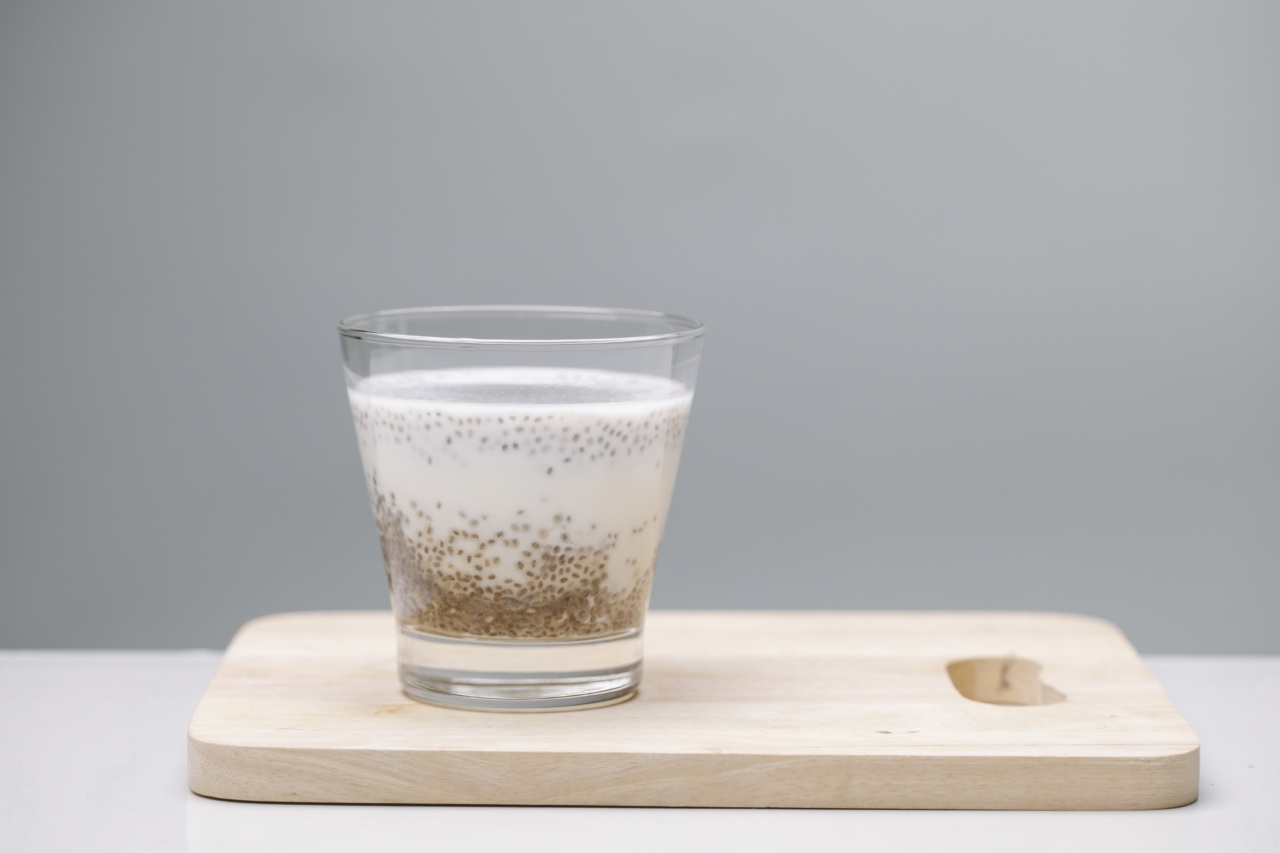Yogurt is a delicious and nutritious dairy product that has been consumed for centuries. It is made by fermenting milk with live bacteria cultures, which gives it its unique tangy taste and creamy texture.
Apart from being a tasty treat, yogurt is also a nutrient-dense food packed with essential vitamins, minerals, and beneficial bacteria. In this article, we will explore the power of yogurt and how it can contribute to a healthy diet.
The Nutritional Composition of Yogurt
Yogurt is made from milk, which is a rich source of several essential nutrients.
During the fermentation process, the live bacteria cultures present in yogurt break down lactose, the natural sugar in milk, making it easier to digest for individuals with lactose intolerance. The nutritional composition of yogurt can vary depending on the type of milk used and the method of production, but here are some of the common nutrients found in yogurt:.
- Protein: Yogurt is an excellent source of protein, which is essential for building and repairing tissues, producing enzymes and hormones, and supporting strong immune function.
- Calcium: Calcium is crucial for promoting healthy bones and teeth, as well as supporting proper muscle and nerve function. Yogurt made from cow’s milk is particularly rich in calcium.
- B vitamins: Yogurt contains various B vitamins, such as vitamin B12, riboflavin (B2), and pantothenic acid (B5). These vitamins are involved in energy metabolism, red blood cell formation, and the maintenance of a healthy nervous system.
- Probiotics: Yogurt contains live probiotic bacteria, such as Lactobacillus and Bifidobacterium, which promote a healthy balance of gut bacteria. These beneficial bacteria contribute to improved digestion, enhanced immune function, and may even provide protection against certain diseases.
- Phosphorus: Phosphorus works in tandem with calcium to support healthy bones and teeth. It also plays a vital role in energy production, DNA synthesis, and maintaining acid-base balance in the body.
- Vitamin D: Some yogurts are fortified with vitamin D, a nutrient that helps the body absorb calcium, promotes bone health, and supports immune function.
The Health Benefits of Yogurt
Regularly incorporating yogurt into your diet can offer numerous health benefits. Here are some of the key advantages of consuming this nutrient-dense food:.
1. Improved Digestive Health
The live cultures present in yogurt, such as Lactobacillus and Bifidobacterium, can help restore and maintain a healthy balance of gut bacteria.
This can improve digestion, prevent or alleviate symptoms of gastrointestinal conditions like diarrhea and constipation, and enhance nutrient absorption.
2. Enhanced Immune Function
The probiotic bacteria in yogurt play a crucial role in modulating the immune system. They help activate and strengthen the body’s natural defense mechanisms, making you less susceptible to infections, allergies, and autoimmune disorders.
3. Weight Management
Yogurt can be a helpful addition to a weight management plan. Its high protein content helps promote feelings of fullness, reducing the likelihood of overeating.
Additionally, the probiotics in yogurt may influence the body’s metabolism and help maintain a healthy weight.
4. Bone Health
The combination of calcium, phosphorus, and vitamin D present in yogurt makes it a fantastic food for promoting strong and healthy bones. Regular yogurt consumption can help reduce the risk of osteoporosis and support overall bone density.
5. Cardiovascular Health
Research suggests that consuming yogurt may have a positive impact on heart health.
The probiotics and bioactive peptides found in yogurt may contribute to lowering blood pressure, reducing LDL cholesterol levels, and improving overall cardiovascular health.
Choosing the Right Yogurt
With so many options available, it’s essential to choose the right yogurt to maximize its health benefits. Here are a few tips:.
1. Look for Live and Active Cultures
When buying yogurt, opt for those labeled with terms like “live” or “active” cultures. These indicate that the yogurt contains beneficial bacteria that can provide potential health benefits.
2. Avoid Added Sugars
Some yogurts in the market are loaded with added sugars, which can negate the health advantages of yogurt. Be sure to check the nutrition label and choose options with little to no added sugars.
Instead, you can sweeten your yogurt naturally with fresh fruits or a drizzle of honey.
3. Consider Greek Yogurt
Greek yogurt is strained to remove much of the whey, resulting in a thicker, creamier texture compared to regular yogurt. It is also higher in protein and lower in carbohydrates.
Greek yogurt is an excellent option for those seeking additional protein in their diet or individuals following a low-carb eating plan.
4. Buy Organic or Grass-Fed Yogurt
Organic or grass-fed yogurts are made from milk obtained from cows that have been fed a natural diet without hormones or antibiotics. Choosing organic or grass-fed options ensures higher quality and minimizes exposure to potentially harmful chemicals.
5. Incorporate Yogurt into Your Recipes
Yogurt is a versatile ingredient that can be used in various sweet and savory recipes. From smoothies and parfaits to marinades and dips, it adds creaminess and a pleasant tang while boosting the nutritional value of your dishes.
Conclusion
Yogurt is much more than a tasty treat. With its impressive nutrient profile and potential health benefits, it is an excellent addition to a well-balanced diet.
Whether you choose regular yogurt, Greek yogurt, or explore other varieties like plant-based alternatives, be sure to prioritize quality and opt for options that offer live bacteria cultures. Remember, the power of yogurt lies in its ability to support digestive health, boost immunity, aid in weight management, promote strong bones, and contribute to overall cardiovascular health.































